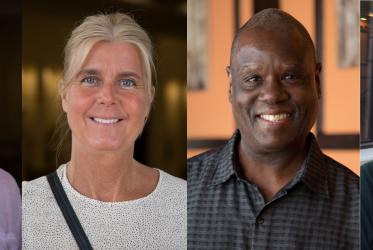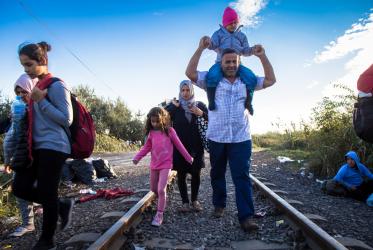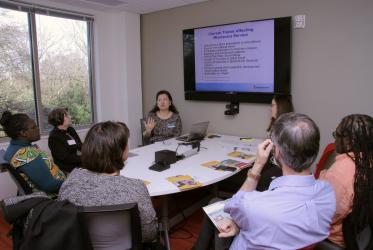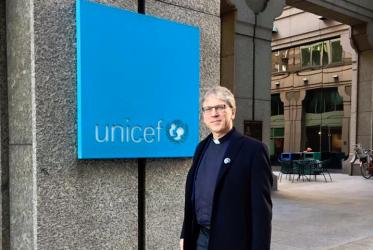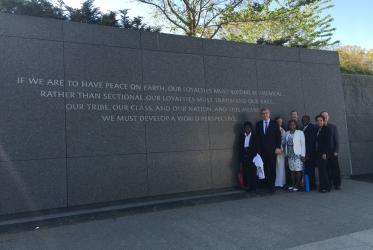Displaying 121 - 140 of 181
07 July 2017
Standing Rock decision ”Gospel news” for indigenous communities
08 December 2016
Eco-justice at stake for Standing Rock people in USA
07 November 2016
WCC appeals for support, for all to stand #WithRefugees
31 August 2016
WCC condemns escalating racial violence in the USA
09 July 2016
